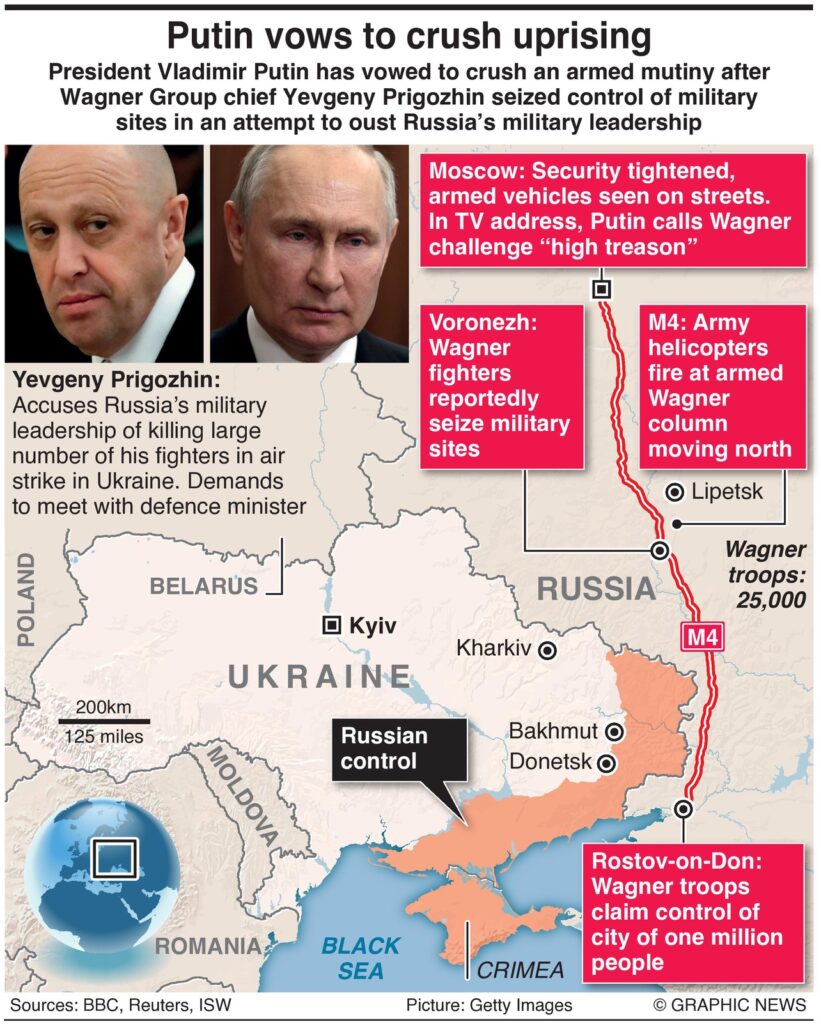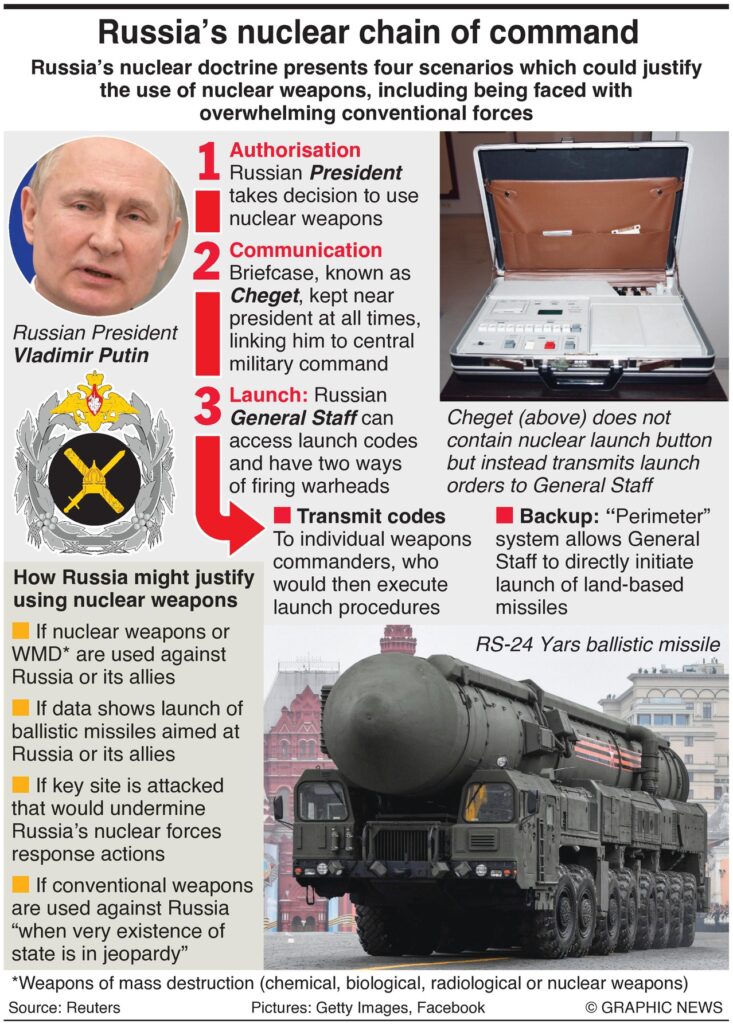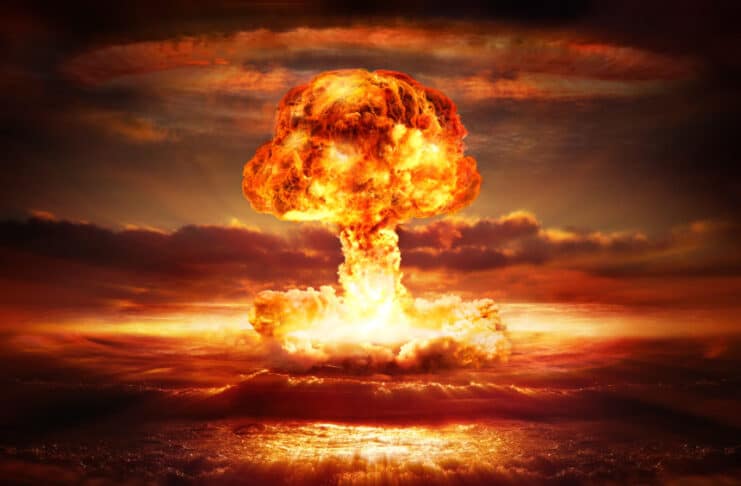ANALYSIS – While the exact timing of the coming uprising was unclear, in mid-June American intelligence agencies began receiving information that Yevgeniy Prigozhin, the increasingly mercurial founder of the Wagner mercenary military group, was planning an armed revolt against the Russian defense establishment.
According to a U.S. official, the intelligence community (IC) quickly warned the White House and Team Biden about the upcoming insurrection and possible loss of Russian nuclear weapons before it occurred.
A Ukrainian official told The Washington Post that he was unaware of Washington sharing that intelligence with Kyiv.
The same U.S. official said that Vladimir Putin was “definitely” told about the upcoming revolt by his own security services “more than 24 hours ago,” which would mean sometime on Friday.
Prigozhin launched his uprising Friday. It was over by Sunday.
Still, as The Washington Post reported: “The Wagner chief got to within 120 miles of the capital before he turned around after striking a deal, brokered by Belarusian President Alexander Lukashenko, a Putin ally.”

The two biggest concerns relating to any type of military uprising were: would Putin remain in power, and who would control the country's vast stores of nuclear weapons? Both would have serious strategic consequences.
As The Washington Post reported:
The exact nature and timing of Prigozhin's plans werenot clear until shortly before his stunning takeover of a military command and tank run toward Moscow on Friday and Saturday, officials said. But “there were enough signals to be able to tell the leadership … that something was up,” said one U.S. official … “So, I think they [team Biden] were ready for it.”
Over the past two weeks there was “high concern” about what might transpire — whether Russian President Vladimir Putin would remain in power and what any instability might mean for control of Russia's nuclear arsenal, the official said. “There were lots of questions along those lines,” this person said.
Prigozhin had been launching public angry tirades against the Kremlin, and especially its military leadership, for weeks. So why did he suddenly decide to act now?
The Post reported:
A keytrigger for Prigozhin, officials said, was a June 10 Russian Defense Ministry order that all volunteer detachments would have to sign contracts with the government. Though the order did not mention Wagner Group by name, the implication was clear: a takeover of Prigozhin's mercenary troops, who have proved essential to Russia's military campaign in Ukraine and have helped secure some of its most notable tactical victories.
“It remains unclear why Putin did not take action to thwart Prigozhin's takeover of the military command or his move on Moscow,” reported the Post. But, it added, “Putin's inaction reflected a lack of high-level coordination in the Russian government and likely internal rivalries, U.S. officials surmise.”
Chechen soldiers, longtime Wagner rivals, were reportedly sent to stop them on the approach to Moscow, but the Wagner forces' largely unopposed, rapid advance exposed Russia's military vulnerabilities at home.
In their lightning strike, Prigozhin's forces on Saturday easily took control of two military sites in southern Russia.
The rebellion ended quickly though, partly because Prigozhin did not get the backing he apparently expected from Russia's security services. The Federal Security Services (FSB), the agency in charge of Russian domestic security, and an offspring of the Soviet KGB, quickly called for Prigozhin's arrest.
But what if a rogue military faction such as Wagner got hold of some of Russia's nukes?
Matthew Bunn, a Harvard University professor who advised the Clinton White House on how to secure nuclear materials worldwide, told the Journal: “if Prigozhin had seized a bunch of nuclear weapons, would that have given him bargaining leverage to negotiate a different deal?”
The Wall Street Journal reported: “The short-lived mutiny in Russia by the Wagner paramilitary group is confronting the West with a fresh reminder of a long-held fear: chaos in the world's largest nuclear power.”

The Journal added:
Russia has nearly 4,500 weapons in its nuclear stockpile, deployed and stored across the vast country. Even the slight risk of the loss of command and control of these weapons could present an outsize threat if some weapons fall into the wrong hands, inside or outside of the country.
The Journal continued:
In advancing toward Moscow, Wagner forces passed within 100 miles of two sites that have been used to store nuclear weapons: Voronezh-45 and Tula-50, said Kristensen of the Federation of American Scientists. He said that it isn't known whether nuclear weapons are currently kept at the sites.
Some former U.S. officials said it isn't clear how effectively the security forces that protect Russia's arsenal would respond if put to the test. Wagner troops encountered little resistance in taking over the city of Rostov-on-Don this weekend.
“Over the past two days, Russian conventional forces and a command headquarters stood aside in Rostov and let Wagner forces take control,” said Steven Andreasen, a senior National Security Council official on defense policy and arms control from 1993 to 2001. “Would they have done the same at a nuclear-storage site? How confident are we that we know where their loyalties lie if there are Wagner tanks at the gates?”
The opinions expressed in this article are those of the author and do not necessarily reflect the positions of American Liberty News.
READ NEXT: Pentagon Admits Accounting Error, Gave Extra $6.2 Billion In Aid To Ukraine



Biden thought they were talking about our capitol. He’s not the brightest bulb on the tree.
No Russian Rev 2
Brandon is not in charge. C’mon, man!